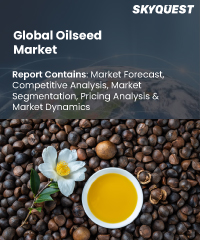
Product ID: SQMIG30H2088
Report ID:
SQMIG30H2088 |
Region:
Global |
Published Date: February, 2024
Pages:
230
|
Tables:
148 |
Figures:
78
We respect your privacy rights and safeguard your personal information. We prevent the disclosure of personal information to third parties.
Oilseed Market size was valued at USD 247.81 billion in 2019 and is poised to grow from USD 268.13 billion in 2023 to USD 503.69 billion by 2031, growing at a CAGR of 8.2% in the forecast period (2024-2031).

Product ID: SQMIG30H2088